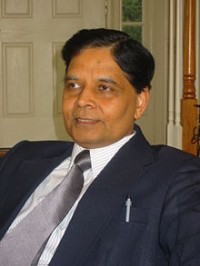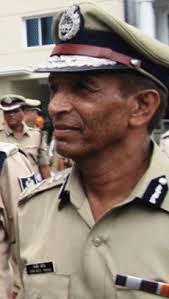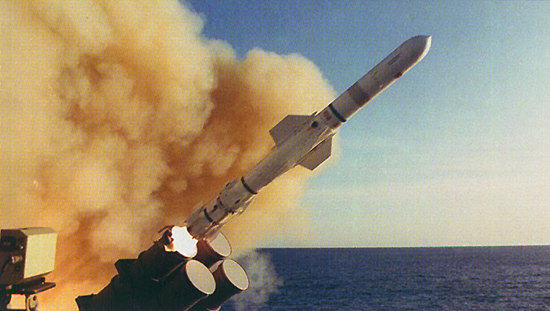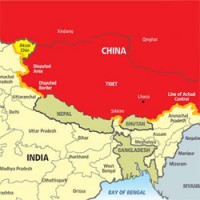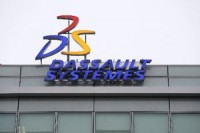India’s most awaited defence deal for 126 combat planes, expected to be worth nearly `1 lakh crore, may take longer than expected to materialize.
Just over a month after the Modi government got into the saddle, it has now emerged that the Medium Multi Role Combat Aircraft (MMRCA) tender for which India selected the French Rafale aircraft from the Dassault Aviation stable is still in the works and would take at least another six months to be ready.
However, even readying all papers by December this year would be no guarantee that the contract would be signed within the current fiscal that ends on March 31, 2015, say senior bureaucrats in the Defence Ministry. “The signing may not even happen within this financial year,’’ a top bureaucrat said, noting there were at least three reasons due to which the seven-year-old tender had not materialized into a successful deal.
It has been more than two years, since Rafale beat its closest competitor Eurofighter Typhoon from the consortium then called EADS Cassidian. When French Foreign Minister Laurent Fabius was in Delhi last week, the Indian response to his efforts to push the deal through was lukewarm, say officials.
Prime Minister Narendra Modi’s likely stopover in Frankfurt and the reported request from Germany for a summit meeting with Chancellor Angela Merkel has further fuelled suspicions that the Germans, who were spearheading the Typhoon Campaign in the MMRCA tender, were partially successful in convincing Modi to rethink the selection of French Rafale.
A senior official said the reason for lack of enthusiasm on India’s part to Fabius’ pitch was not due to a rethink, but due to other factors. The most important being the long-winding negotiations, particularly on the life cycle costs aspect of the Rafale offer, over which former defence minister A K Antony had raised a controversy in February this year.
During the Defence Exposition in Delhi, Antony had said that delays (in the UPA regime) over Rafale deal was due to ‘‘certain issues’’ with Rafale’s life cycle costs, which would be the expenditure incurred by India on operations and maintenance if its flies the Rafale plane for 40 years after induction, along with the price of the planes. Since then, India and France—particularly Dassault Aviation and Hindustan Aeronautics Limited—have concluded their part of the negotiations as partners in the venture. Under the tender provisions, Dassault Aviation will manufacture the first 18 of the Rafale for IAF, while HAL will build the remaining 108 in India.
Senior IAF officers, who have dealt with the Rafale acquisition process, pointed out that the delays on the life cycle costs negotiations were due to the fact that this was the first-ever Indian defence deal in which these costs were being worked out. It had also been made mandatory to calculate the life cycle costs before the deal is signed.
‘‘Life cycle cost is an important determinant in deciding with whom the contract would be signed. Even at this stage, the tender process provides for going back to the negotiating table with the second lowest bidder,’’ a former officer, who did not wish to be identified, said. But Typhoon’s costs are prohibitively higher than Rafale, he added.
Another factor troubling the Indian defence ministry is the cost of the MMRCA. When the approval for procuring the 126 aircraft was given by the previous NDA regime in 2000, the cost pegged was `42,000 crore.
‘‘After one-and-a-half decade of that approval, it is but obvious that the cost of the planes would increase and it could in fact double, considering inflationary factors and the Rupee-Euro conversion. Though India has benchmarked the likely price of the planes and the cost increase has been factored in, the necessary approvals for budgetary provisions for the planes would need a fresh sanction,” a senior IAF officer admitted. That would mean the new Cabinet Committee on Security (CCS) under Modi would have to consider the fresh cost and give a nod to it. That too could take about a month to three months, after the fresh price, based on the benchmarked price, the commercial bids from Dassault Aviation and the cost negotiation are taken into account. But, the CCS meet to consider the MMRCA price is still far away, officers said, noting that Indian government and Dassault Aviation have not even reached the cost negotiation stage yet.
Last, but not the least, this fiscal’s 2.24 lakh crore interim defence budget, especially the89,588-crore capital expenditure for new assets, has not factored in the 15 per cent down payment that needs to be immediately made if the MMRCA deal is inked. Considering the cost of the MMRCA deal could go up to 1 lakh crore, that would mean at least15,000 crore of down payment. But the IAF has got only `20,507 crore for its capital expenses this fiscal, under the interim budget.
Though the Defence Ministry has sought a 25 per cent increase in the defence budget that is to be presented by Finance and Defence Minister Arun Jaitley next week, senior ministry officials admitted that they were only expecting a marginal hike to cater to inflation. Unfortunately for the IAF, already about 60 per cent of the capital expenses provided for it this fiscal would go towards committed liabilities, such as contracts it had already signed for in the previous years and it would be left with just about 40 per cent of the funds for new contracts.




